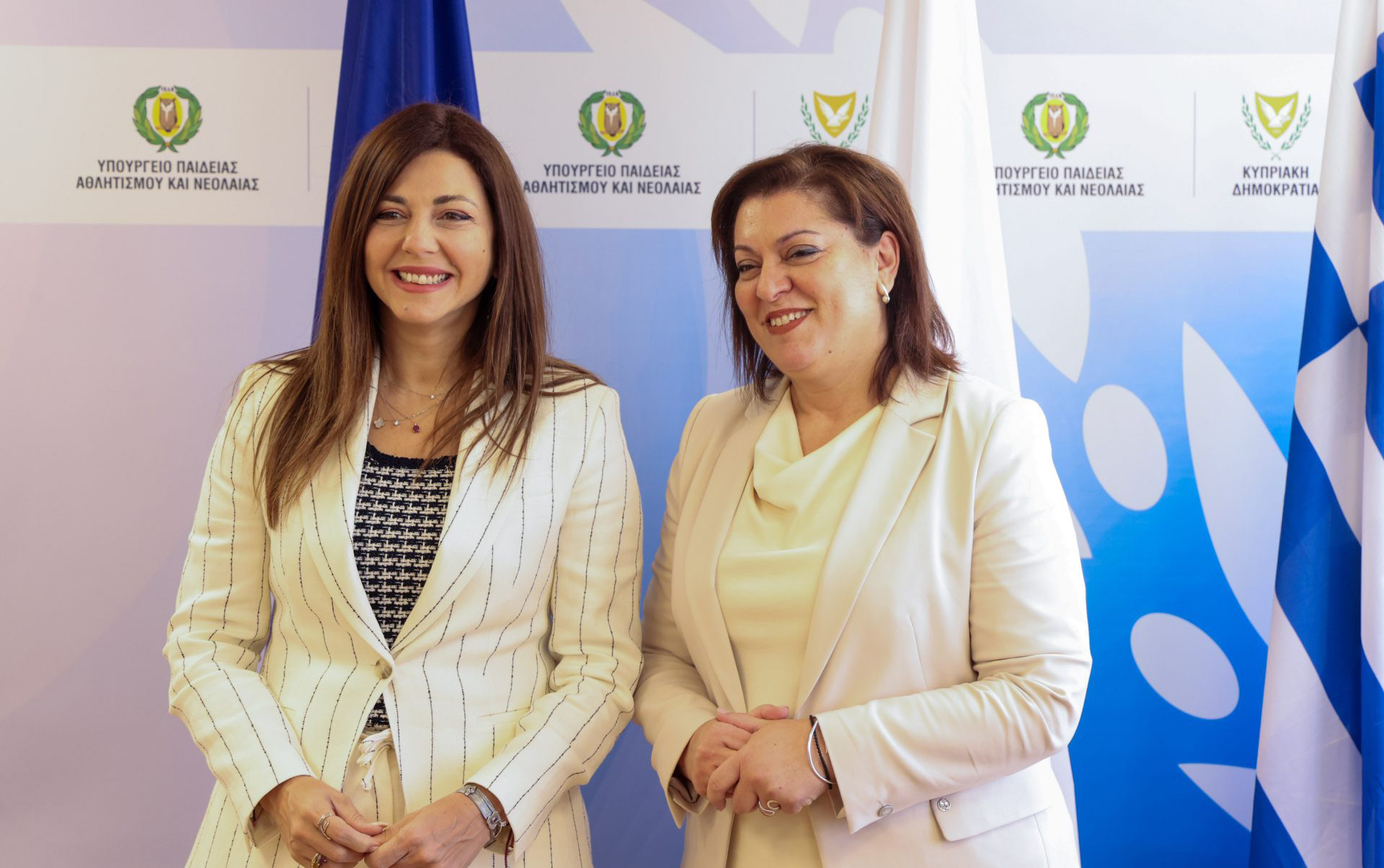Cyprus and Greece are deepening cooperation in the field of education, focusing on the transition from rote learning to skills-based instruction, the exchange of educational materials, and the organisation of a joint conference and workshop on violence and delinquency later this year.
These topics were central to discussions during a two-day official visit to Cyprus by Greek Education Minister Sofia Zacharaki – her first official trip abroad – where she met with her Cypriot counterpart, Athena Michaelidou.
The two ministers highlighted the importance of strengthening collaboration for the benefit of teachers, students, and parents. Michaelidou described the visit as a continuation of existing cooperation, with renewed emphasis on moving “from stale knowledge to practical skills.”
She cited environmental and sustainable development education as an example, where educational content is co-created by both teachers and students. Michaelidou also noted that Cyprus is preparing teaching material on the island’s history to be used in Greek schools, following a decision by the Greek education ministry to mark April 1, 1955 – the start of the Cypriot anti-colonial struggle – as a day of commemoration.
The ministers also addressed the issue of violence and delinquency in schools and announced plans for a joint conference and workshop later in the year.
Another key item on their agenda was the proper use of the Greek language. Michaelidou said a common action plan would soon be unveiled, which would include educational resources for both students and teachers, as well as teacher evaluations.
Zacharaki stressed that the meeting was not merely ceremonial, but “a statement of collaboration with historical importance.”
“This collaboration has a present and a future and this future is secured when the children and the teachers and, of course, the parents in both Greece and Cyprus feel that what we are doing right now is to strengthen them so that they can be worthy European citizens, who will honour their country and history,” Zacharaki said.
She also referred to new textbooks to be introduced in Greece in the coming academic year, including the “multiple book” concept, which allows educators to select from a curated list of teaching materials. Cyprus is also set to adopt this model.
Zacharaki said a new strategy for delinquency and violence addressed to young children would be presented on Monday and would be “gladly be made available” to Cyprus.
Referring to career guidance, Zacharaki said emphasis was being given by both countries to quality, which has already proven successful, as many foreign institutions were looking to Greece and Cyprus to establish branches.
“We consider it to be particularly important that our countries are becoming centres for educational policy and research development,” Zacharaki added.
Both ministers underscored the importance of ongoing cooperation to promote shared values and objectives, and to build a strong, future-oriented relationship rooted in historical ties and a common vision for Hellenism.
Zacharaki also met with President Nikos Christodoulides, who said education was as important as the national issues.
He said there were immense opportunities and that the exchanges happening and those planned would yield results.
Referring to the interest shown by foreign universities to set up branches in Cyprus and for Cypriot universities to go to Greece, the president said there was room for cooperation.






Click here to change your cookie preferences